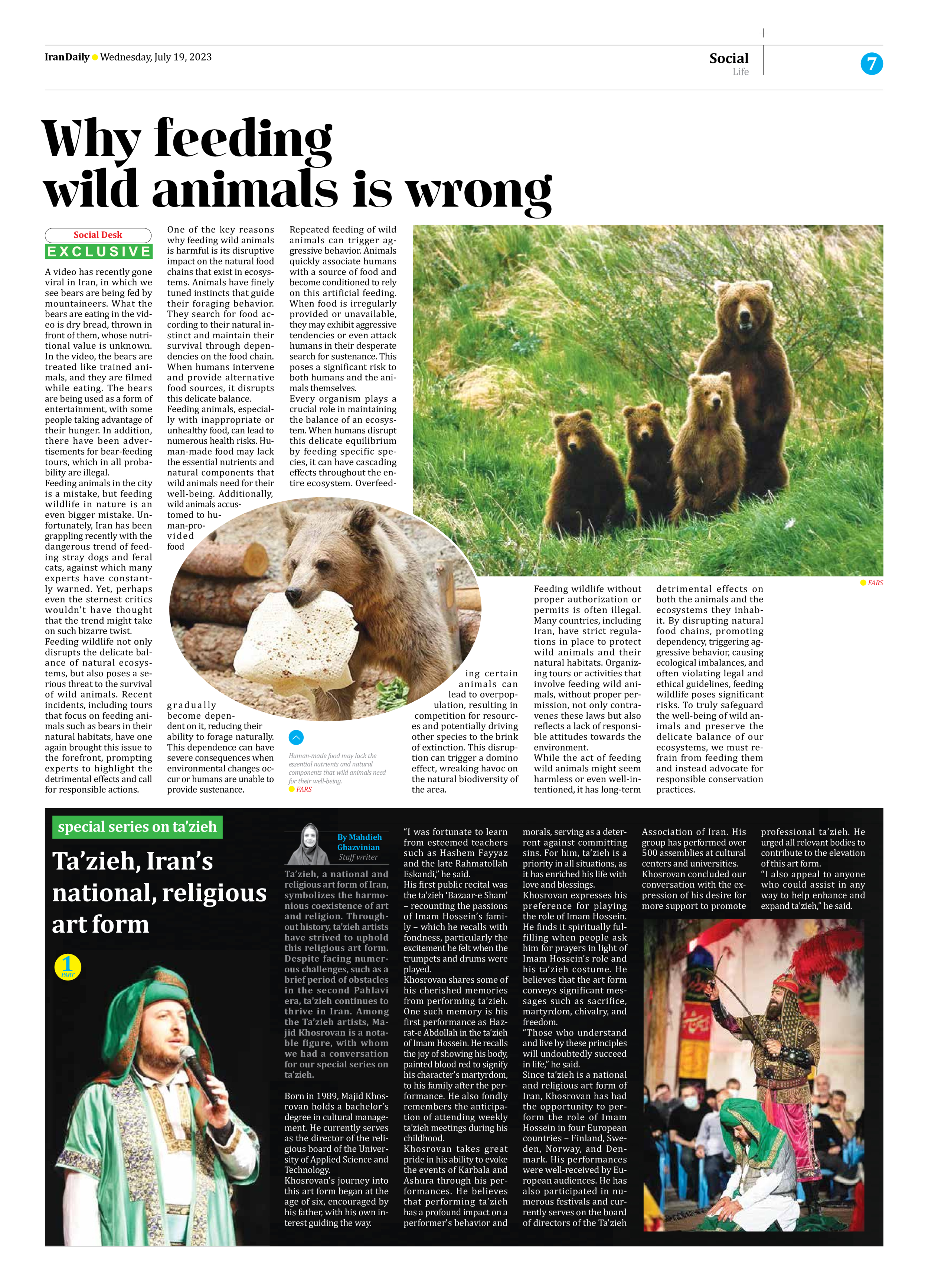
Why feeding wild animals is wrong
A video has recently gone viral in Iran, in which we see bears are being fed by mountaineers. What the bears are eating in the video is dry bread, thrown in front of them, whose nutritional value is unknown. In the video, the bears are treated like trained animals, and they are filmed while eating. The bears are being used as a form of entertainment, with some people taking advantage of their hunger. In addition, there have been advertisements for bear-feeding tours, which in all probability are illegal.
Feeding animals in the city is a mistake, but feeding wildlife in nature is an even bigger mistake. Unfortunately, Iran has been grappling recently with the dangerous trend of feeding stray dogs and feral cats, against which many experts have constantly warned. Yet, perhaps even the sternest critics wouldn’t have thought that the trend might take on such bizarre twist.
Feeding wildlife not only disrupts the delicate balance of natural ecosystems, but also poses a serious threat to the survival of wild animals. Recent incidents, including tours that focus on feeding animals such as bears in their natural habitats, have one again brought this issue to the forefront, prompting experts to highlight the detrimental effects and call for responsible actions.
One of the key reasons why feeding wild animals is harmful is its disruptive impact on the natural food chains that exist in ecosystems. Animals have finely tuned instincts that guide their foraging behavior. They search for food according to their natural instinct and maintain their survival through dependencies on the food chain. When humans intervene and provide alternative food sources, it disrupts this delicate balance.
Feeding animals, especially with inappropriate or unhealthy food, can lead to numerous health risks. Human-made food may lack the essential nutrients and natural components that wild animals need for their well-being. Additionally, wild animals accustomed to human-provided food gradually become dependent on it, reducing their ability to forage naturally. This dependence can have severe consequences when environmental changes occur or humans are unable to provide sustenance.
Repeated feeding of wild animals can trigger aggressive behavior. Animals quickly associate humans with a source of food and become conditioned to rely on this artificial feeding. When food is irregularly provided or unavailable, they may exhibit aggressive tendencies or even attack humans in their desperate search for sustenance. This poses a significant risk to both humans and the animals themselves.
Every organism plays a crucial role in maintaining the balance of an ecosystem. When humans disrupt this delicate equilibrium by feeding specific species, it can have cascading effects throughout the entire ecosystem. Overfeeding certain animals can lead to overpopulation, resulting in competition for resources and potentially driving other species to the brink of extinction. This disruption can trigger a domino effect, wreaking havoc on the natural biodiversity of the area.
Feeding wildlife without proper authorization or permits is often illegal. Many countries, including Iran, have strict regulations in place to protect wild animals and their natural habitats. Organizing tours or activities that involve feeding wild animals, without proper permission, not only contravenes these laws but also reflects a lack of responsible attitudes towards the environment.
While the act of feeding wild animals might seem harmless or even well-intentioned, it has long-term detrimental effects on both the animals and the ecosystems they inhabit. By disrupting natural food chains, promoting dependency, triggering aggressive behavior, causing ecological imbalances, and often violating legal and ethical guidelines, feeding wildlife poses significant risks. To truly safeguard the well-being of wild animals and preserve the delicate balance of our ecosystems, we must refrain from feeding them and instead advocate for responsible conservation practices.







